Are Black Plastic Kitchen Utensils Safe? 10 Key Insights

Black kitchen utensils are trendy and popular for their sleek and modern appearance. However, many wonder whether these utensils are safe to use, particularly when it comes to food preparation. If you’re concerned about the safety of these items, here are ten key insights to help you understand whether black plastic kitchen utensils are safe for your kitchen.
1. Material Matters
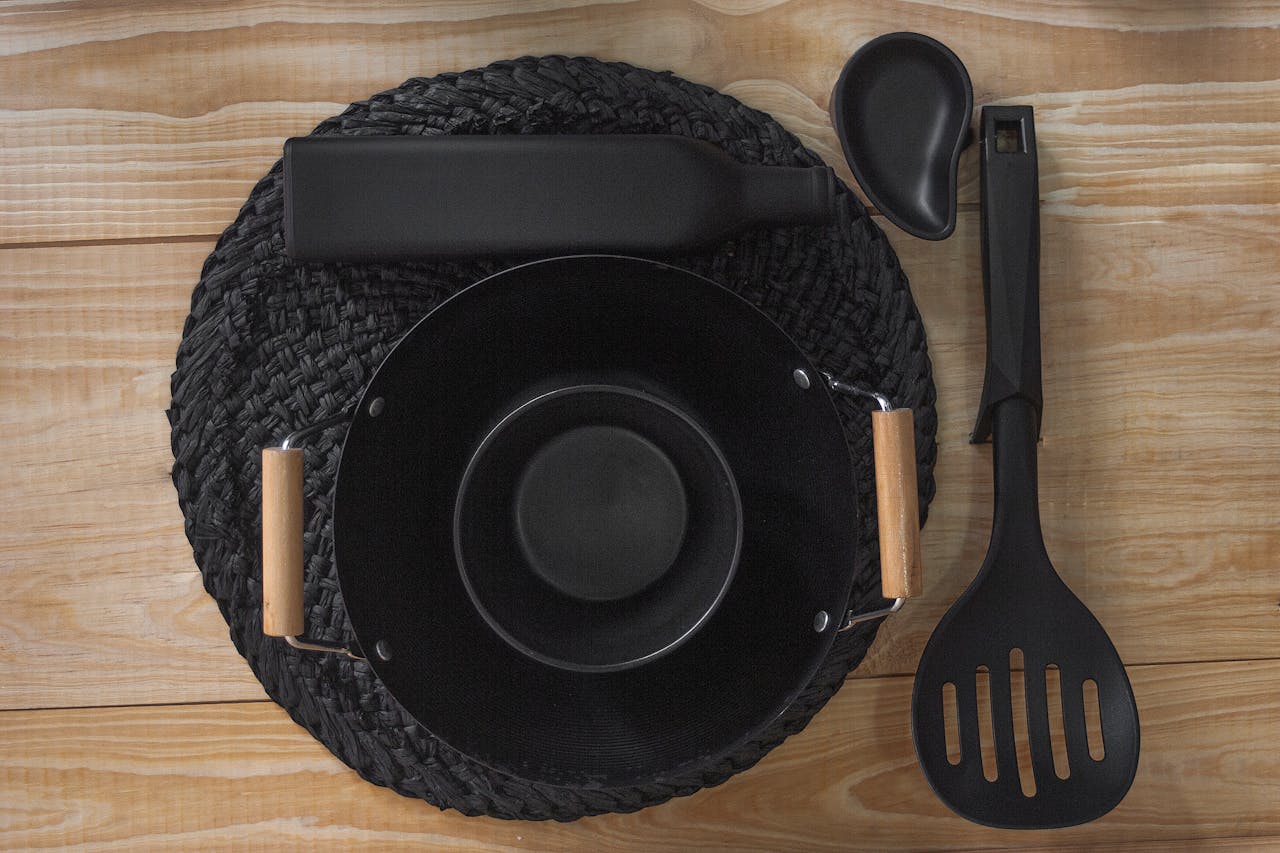
Black kitchen utensils are often made from various materials such as silicone, plastic, metal, or nylon. The safety of black utensils depends largely on the type of material used. Silicone, for example, is generally considered food-safe and heat-resistant, while certain plastics or nylons might break down under high temperatures, potentially releasing harmful chemicals into your food.
2. BPA-Free Plastics
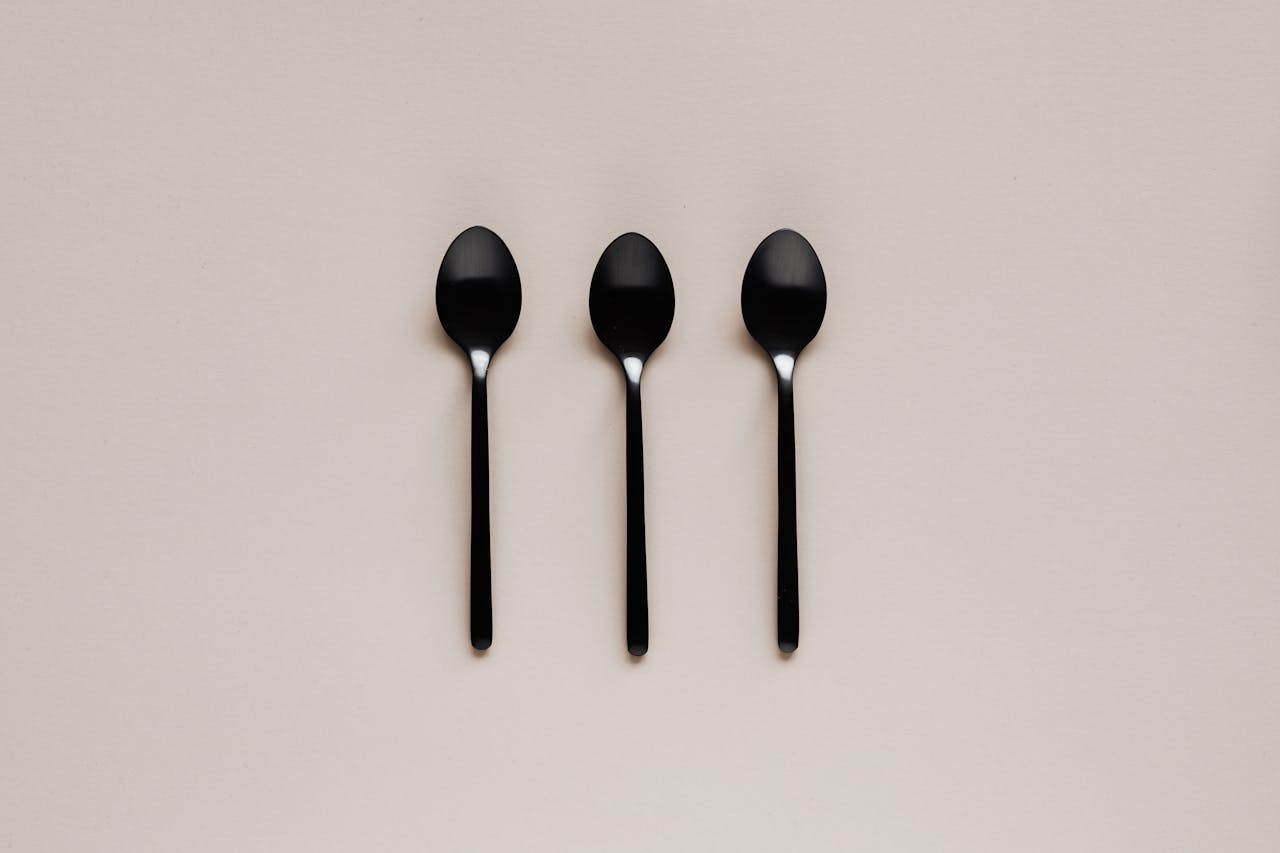
If your black kitchen utensils are made from plastic, it’s important to check if they are labeled BPA-free. Bisphenol A (BPA) is a chemical that can leach from plastics into food when heated. BPA exposure has been linked to health issues, so using BPA-free utensils ensures a safer cooking experience. Always look for products that explicitly state they are free from this chemical.
3. Heat Resistance
![3. Heat Resistance <p>Utensils exposed to high heat during cooking need to be heat-resistant. Silicone and some high-quality nylon utensils can withstand temperatures up to 400-500°F without melting or releasing toxins. Lower-quality black utensils, particularly those made of cheaper plastics, may melt or deform at high heat, making them unsafe for cooking.if(typeof ez_ad_units == "undefined"){ez_ad_units=[];}ez_ad_units.push([[250,250],"ourdebtfreefamily_com-large-mobile-banner-1","ezslot_5",107,"0","0", "ourdebtfreefamily_com-large-mobile-banner-1-0"]);if(typeof __ez_fad_position == "function"){__ez_fad_position("div-gpt-ad-ourdebtfreefamily_com-large-mobile-banner-1-0");}if(typeof ez_ad_units == "undefined"){ez_ad_units=[];}ez_ad_units.push([[250,250],"ourdebtfreefamily_com-large-mobile-banner-1","ezslot_6",107,"0","1", "ourdebtfreefamily_com-large-mobile-banner-1-0_1"]);if(typeof __ez_fad_position == "function"){__ez_fad_position("div-gpt-ad-ourdebtfreefamily_com-large-mobile-banner-1-0_1");} .large-mobile-banner-1-multi-107{align-items:center;border:none !important;display:flex !important;flex-direction:column !important;float:none !important;justify-content:center;line-height:0px;margin-bottom:15px !important;margin-left:auto !important;margin-right:auto !important;margin-top:15px !important;max-width:100% !important;min-height:250px;min-width:250px;padding:0;text-align:center !important;}</p> ::Pexels](https://www.ourdebtfreefamily.com/wp-content/uploads/2024/10/pexels-cflaten-5514723.jpg)
Utensils exposed to high heat during cooking need to be heat-resistant. Silicone and some high-quality nylon utensils can withstand temperatures up to 400-500°F without melting or releasing toxins. Lower-quality black utensils, particularly those made of cheaper plastics, may melt or deform at high heat, making them unsafe for cooking.
4. Non-Reactive Properties
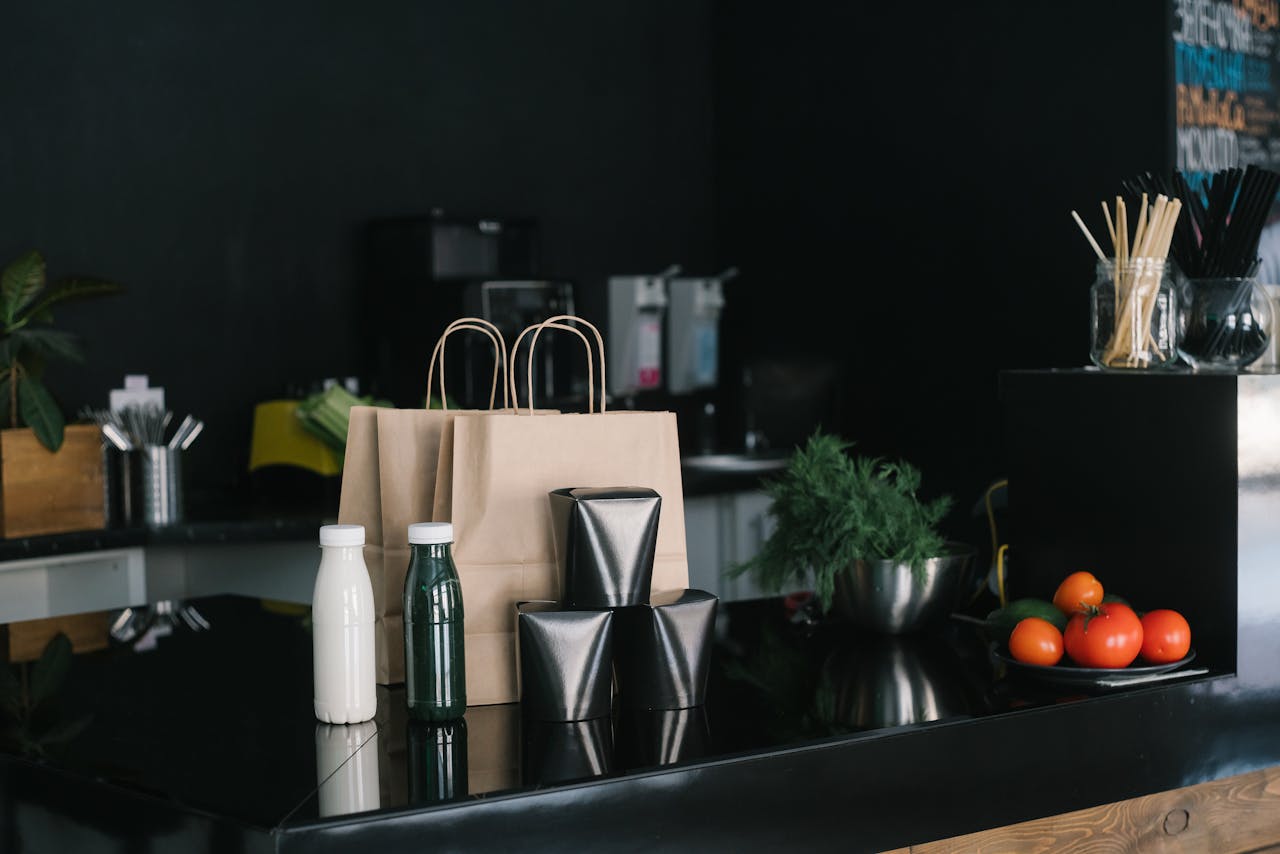
Certain materials, such as silicone and stainless steel, are non-reactive, meaning they don’t interact with acidic or alkaline foods. This property ensures that your utensils won’t alter the taste of your dishes or release harmful substances when cooking with ingredients like tomatoes or vinegar.
5. Non-Stick Cookware Compatibility
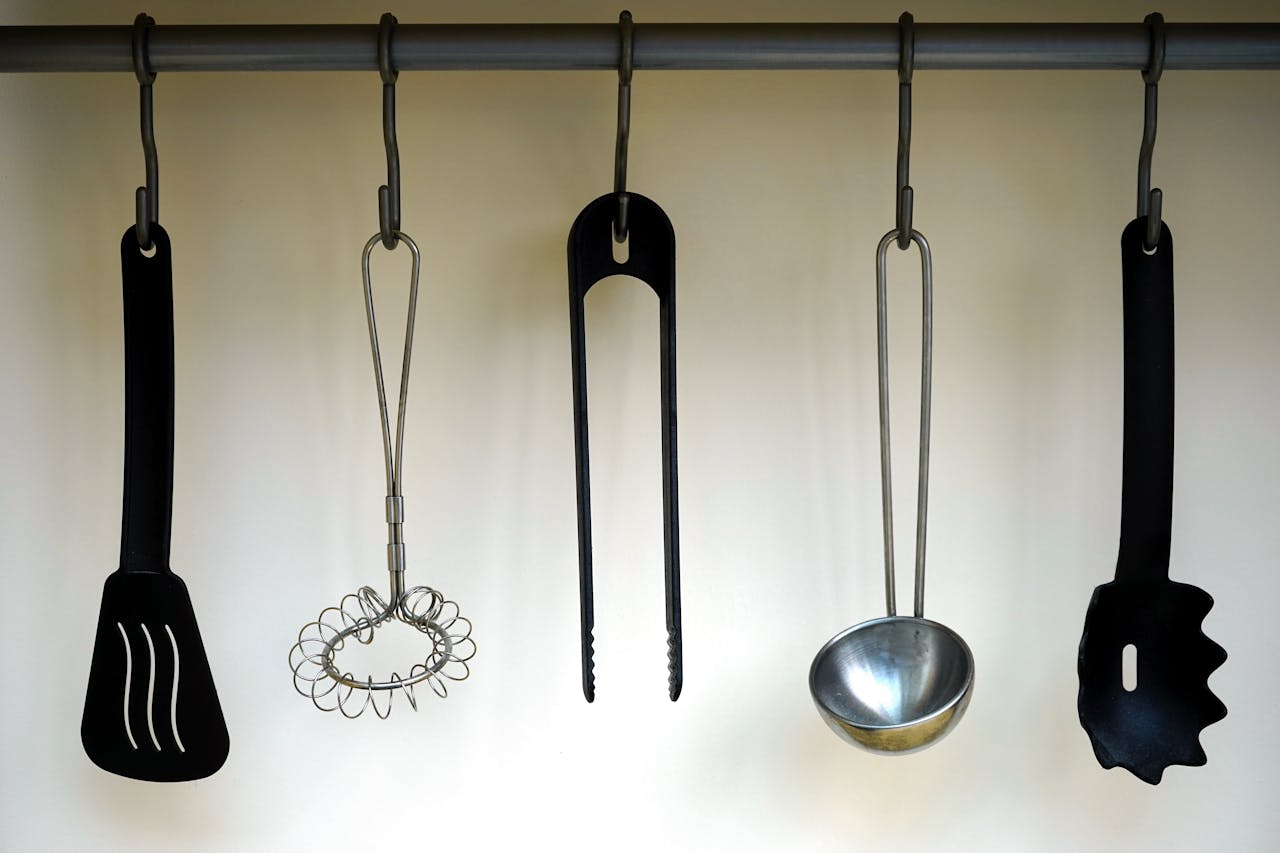
Many black utensils are designed specifically for use with non-stick cookware to prevent scratching. Silicone and nylon utensils are gentle on non-stick surfaces, reducing the risk of damaging the coating. However, always ensure that your black utensils are safe for use with non-stick pans by checking the manufacturer’s recommendations.
6. Food-Grade Certification
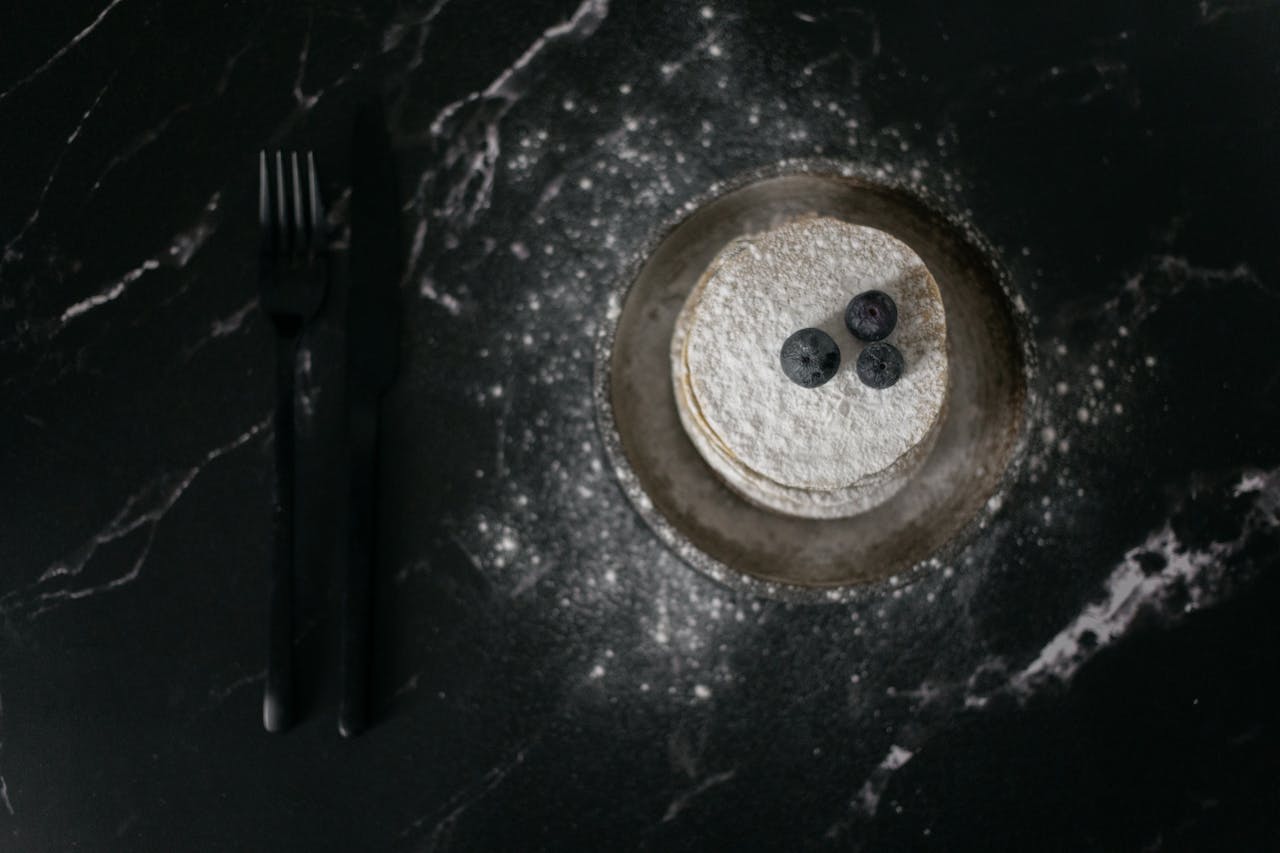
To ensure the safety of black utensils, look for products that are food-grade certified. This means the materials used have been tested and approved by regulatory agencies (such as the FDA in the U.S.) for safe contact with food. A food-grade label guarantees that the utensil is made from non-toxic materials and is suitable for kitchen use.
7. Cleaning and Maintenance
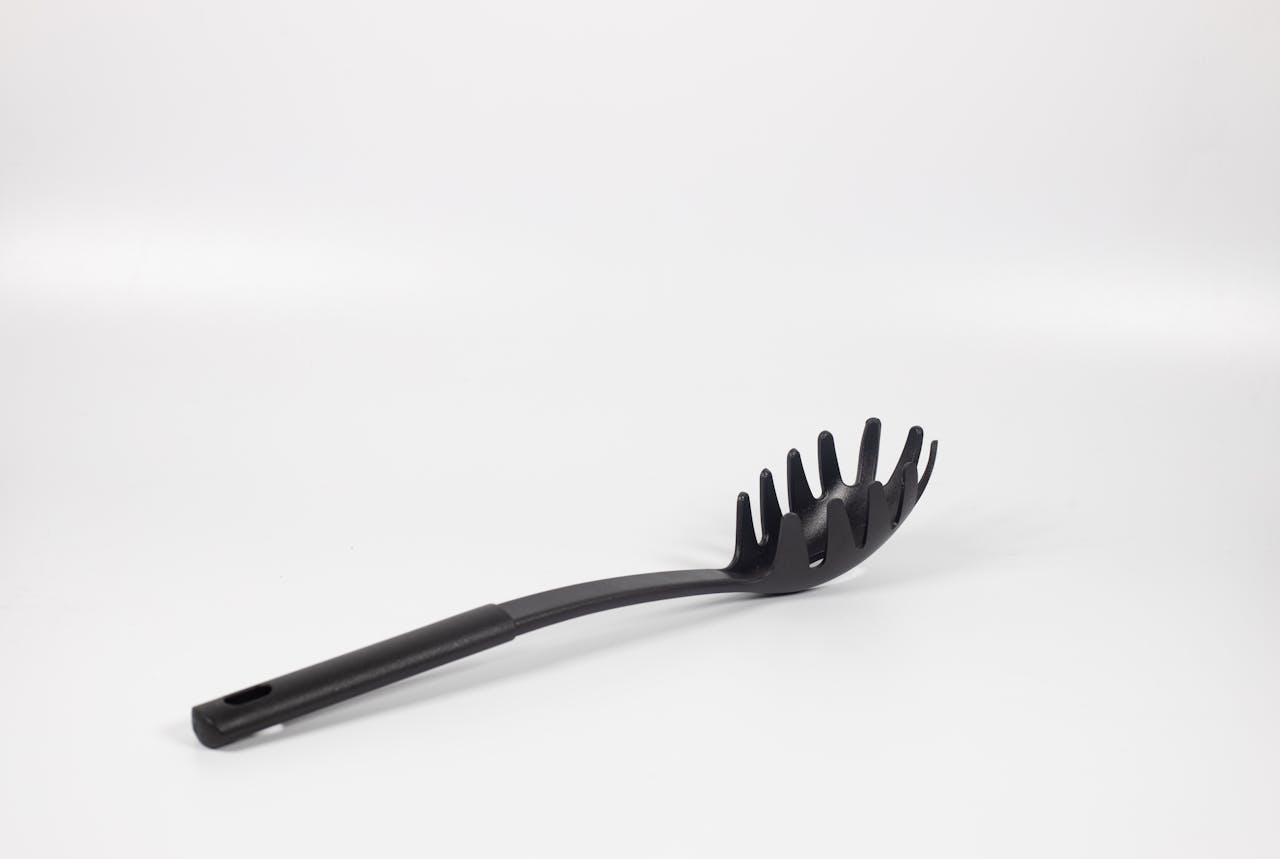
Proper care is essential for maintaining the safety of your kitchen utensils. Some black utensils, especially those made from silicone, can accumulate oils and residues if not cleaned thoroughly. Silicone and plastic utensils are typically dishwasher-safe, but if you notice any cracks, peeling, or wear over time, it’s best to replace them to avoid contamination risks.
8. Avoiding Toxic Dyes

Some lower-quality black utensils may be colored with dyes that aren’t food-safe, potentially leaching harmful substances into your food over time. High-quality brands usually test their products to ensure the colorants used are non-toxic. To be on the safe side, avoid utensils from questionable or unknown brands, and opt for those with clear labeling or certifications.
9. Avoid Utensils with Non-Stick Coatings

Some black utensils may have non-stick coatings that can wear off over time, especially with frequent use. If the coating starts to chip, it could enter your food. Opt for utensils without such coatings or choose high-quality, durable ones.
10. Odor and Stain Resistance
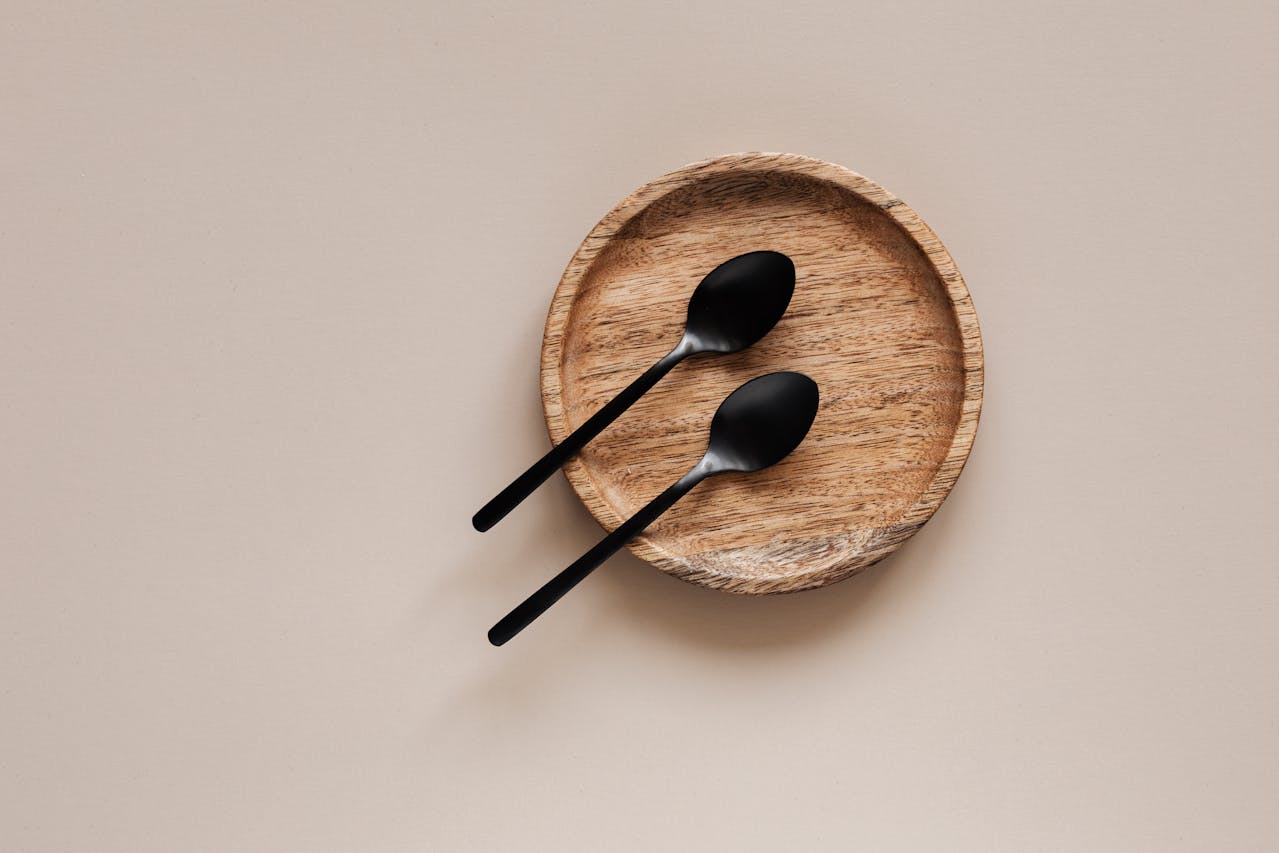
Certain materials, like silicone, are naturally resistant to absorbing odors and stains, which is important for kitchen hygiene. Lower-quality plastics, on the other hand, may retain food smells or stains, potentially impacting the taste of future meals and overall safety.
Final Thoughts
![Final Thoughts <p>In conclusion, black kitchen utensils can be safe and effective if they are made from high-quality materials, such as food-grade silicone or stainless steel. Always choose utensils that are BPA-free, heat-resistant, and certified for food safety. By following these guidelines, you can enjoy the convenience and style of black utensils without compromising on health or safety in your kitchen.if(typeof ez_ad_units == "undefined"){ez_ad_units=[];}ez_ad_units.push([[728,90],"ourdebtfreefamily_com-large-mobile-banner-2","ezslot_8",105,"0","0", "ourdebtfreefamily_com-large-mobile-banner-2-0"]);if(typeof __ez_fad_position == "function"){__ez_fad_position("div-gpt-ad-ourdebtfreefamily_com-large-mobile-banner-2-0");}</p> ::Pexels](https://www.ourdebtfreefamily.com/wp-content/uploads/2024/10/pexels-nicola-barts-7936688.jpg)
In conclusion, black kitchen utensils can be safe and effective if they are made from high-quality materials, such as food-grade silicone or stainless steel. Always choose utensils that are BPA-free, heat-resistant, and certified for food safety. By following these guidelines, you can enjoy the convenience and style of black utensils without compromising on health or safety in your kitchen.
Leave a Reply